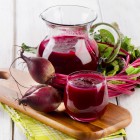
Beet Juice Lowers Blood Pressure
This week Patrick shared his good news with me. “I have been juicing constantly since the beginning of the year (finally!!!). I am seeing great health benefits, especially a drop of the blood pressure without taking my medication, and a clearer mind.”
Well Patrick isn’t alone. A resent study (Medical News Today, 2015) conducted at Queen Mary University of London, and funded by the British Heart Foundation. showed that one cup of beet juice a day can help lower blood pressure in patients with hypertension, even those whose blood pressure was not controlled by medication. Published in the journal Hypertension, the scientists examined the impact consuming nitrate has on blood pressure. In the 4-week study, patients drinking the juice in the active group (whose beetroot juice contained inorganic nitrate) experienced a reduction in blood pressure of 8/4 mmHg (millimeters of mercury).
The patients in this juice group experienced a 20 percent improvement in blood vessel dilation capacity. Artery stiffness was also reduced by about 10 percent. Various studies also show these changes are associated with a reduced risk of heart disease.
In contrast, there were “no changes to blood pressure, blood vessel function or artery stiffness in the placebo group (whose beetroot juice did not contain nitrate) during the period of the study.”1
Vegetables rich in nitrates include:
- beetroot
- lettuce
- cabbage
- fennel
Vegetables take in nitrate through their little roots that reach down into the soil where nitrates are naturally found. Nitrates are important to the growth of vegetables. The researchers explained that when nitrates are converted to a gas called nitric oxide, it has a relaxing effect on blood vessels and may help lower blood pressure.2
Are you surprised that this study shows nitrates as being beneficial? If yes, I’m with you. I thought I’d do some research before I advised you about this new beet juice study. Here’s what I found: A study that originally connected nitrates with cancer risk and caused the scare in the first place has since been discredited after being subjected to peer review. There have been major reviews of the scientific literature that found no link between nitrates or nitrites and human cancers, or even evidence to suggest that they may be carcinogenic. Further research suggests that nitrates and nitrites may not only be harmless, they may be beneficial, especially for immunity, heart health, and hypertension.3
Notes
1 http://www.medicalnewstoday.com/articles/288229.php
2 http://www.medicalnewstoday.com/articles/259113.php Amrita Ahluwalia, Ph.D., lead author of the study and a professor of vascular pharmacology at The Barts and The London Medical School in London, reported to Medical Xpress
3 http://chriskresser.com/the-nitrate-and-nitrite-myth-another-reason-not-to-fear-bacon




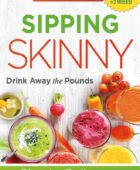
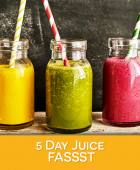
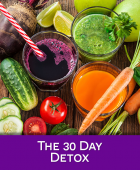


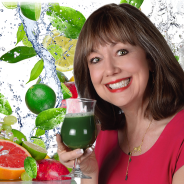
I do not have a juicer, however I make 1 or 2 green smoothies a day. Will adding a beet to the smoothie give good results also?
Beets are quite fibrous, but you can give it a try.
How much sugar does 1 glass of beetroot contain ?
How is it different than let us eating one beet a day ? Are there any studies which shows different results for beet root & leaves Vs. Beet Juice.
Does 1 glass of beet juice every day cause a big spike in sugar level in the blood ? Will that make you more predisposed to prediabetes and diabetes?
What can one do to prevent spikes in sugar level ? For example, what kinds of fats and/or proteins one can ingest before drinking beet juice ?
Is beet GMO ? I
Thanks.
An 8-fluid-ounce serving of beet juice gives you about 26 g of carbohydrates. I have not found any studies on just eating beetroot and leaves. Beet juice could cause a spike in blood sugar. For anyone who has a sugar metabolism challenge, beet juice should be used in small quantities and diluted with either water or cucumber juice. Mix it with green veggies and some lemon or lime. If you do ingest some protein, such as grass fed beef or free-range turkey and combine that with a good fat like avocado or coconut oil or extra virgin olive oil, that should help you not to get as much of a blood sugar spike.
Can you buy beet juice?
I have not seen it for sale anywhere. Some juice bars can make it.
What about the sugar content of beets impacting diabetics – blood sugar etc.
Beets are higher in sugar than most other vegetables so diabetics do need to be very careful. You can have only a small amount and it should be diluted with either cucumber juice or water. Don’t mix it with carrot of fruit juice (even more sugar) except for lemon or lime. Use most green veggies.
Long ago I recall reading that one should not do much more than 1/4 cup of beet juice because it is high in oxalic acid. Are you familiar with that?
Thank you, Nana
Long ago I recall reading that one should not do much more than 1/4 cup of beet juice daily because it is high in oxalic acid. Are you familiar with that?
Thank you, Nana
It’s the beet greens much more than the beetroot that is high in oxalates. You should keep that to 1/4 cup probably, but that is a lot of beet greens juice. I don’t think I’ve ever drunk that much beet greens.
I found beets with no tops and also ginger root.
The first drink was 1 apple and 1\2 lemon to help with the taste 1 fare sized beet and a little ginger root. It made about 10 oz of juce. Will this be OK the help reduction BP.